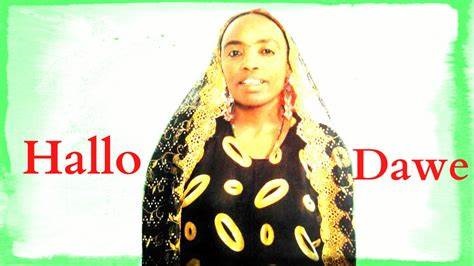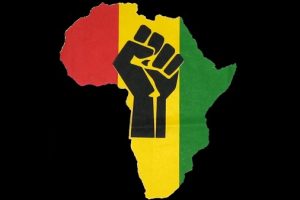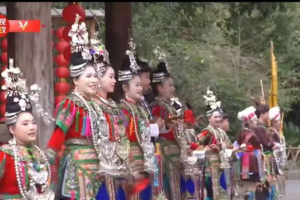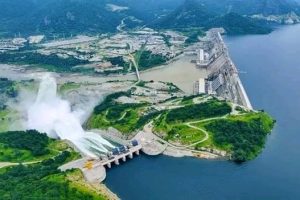
Hallo was born in 1947 to Dawud Abdullah Ali and Fatuma Hassan in Biyo Awale village, east of Dire Dawa town.
Her birth name was Halima Dawud. As a child, she was a strong girl who quickly grasped everything she saw and heard, so her name was changed to Halloo Daawee. Halloo is the name of a hardwood tree found in the desert area. She was named after it to show her strength. While a kid Halloo Daawe moved to Dire Dawa and grew up with her aunt, Kadija Hasan. The secret of her ability, strength, knowledge, cheerfulness, nationalism and heroism was that she grew up in a happy, patriotic family and a community of Dire Dawa that love their identity, respect culture, embrace everyone with cordiality and live with peace and love. The senior artist had a great artistic gift as a child, loved her culture, played songs and dances, Heellee and Shaggooyyee and entertained the community with her peers and young friends.
In 1961, a band known as Biftuu biyya tenyaa was founded in the city of Dire Dawa.It paved the way for the gifted lady to showcase her born talent with special gifts as a child.
The band was built by a broad community foundation, equipped with modern musical instruments with the help of the people.It solved the problem of shortage of female artists in Oromo bands.For the first time it was filled with strong female singers and dancers.She had contributed greatly to entertain the people and inspire them to fight and struggle against injustice and inequalities.
Artist Halloo Dawee joined the band to serve and contribute her part in the Band with other artist like Fatume Mahammad, Foziya Mahammad, Hajara Adam. She played a significant role in Oromo Music industry and she was the one who served her people throughout her life.She suffered a lot but overcame all difficulties with determination and heroism and served her people with fame and love. Hallo began her career with the song, “Barbanee walbara’. It was a crucial time for her people to get to know each other, get closer to each other and fight for their rights and freedoms together. While serving as the source of the great artists in Dire Dawa, Halloo was one of the first Oromo artists from six parts of Oromia to gather in the capital of Addis Ababa, to present a public exhibition of Oromo art at the National Theatre. Halloo was known for her struggle-inspiring songs with the Biftuu biyya tenyaa band at the shows.She had won a lot of popularity.
Biftuu biyya tenyaa Band has grown to become a source of famous and well -known artists for the role of Halloo and has become known nationally.
Halloo Daawe was one of those who suffered severe torture in prison when the musical instruments of the Band were taken by the Derg.The artists who served in the band were arrested.
After the dissolution of the Biftuu biyya tenyaa Band by the then Government , Halloo moved to Harar after her release from prison and served in the Hararge Farmers Association and the Caffee Gada Band.
She used art as a tool of struggle and continued her struggle to promote Oromuma or Oromo nationalism . She was imprisoned and tortured on various occasions.
Artist and activist Halloo had made 10 cassettes of songs on her own, 13 cassettes with her friends, and 23 albums or cassettes in total during her long career in the arts. Her songs entertained the people, showered love and inspired struggle.
Halloo will be remembered forever in the hearts of the Oromo people as the Mother of Oromo Art. Through her artwork, she had made a great contribution to the promotion of Oromo art and culture.She fought for justice to be served to the people.
Artist Halloo, who was a mother of three, passed away on October 14, 2023 at the age of 62 after a long illness.
On her funeral ceremony Deputy Mayor of Adama City, Hinsene Mahaammad, said that artist Hallo had been performing many songs that had caught the ears and hearts of the people with her melodic voice. Halloo is an artist who had contributed greatly to the development of Oromo culture by singing in Afaan Oromo during the time when Afaan
Oromo was under tacit supperasion to the extent of not being seen qualified for airing on the radio.
The path paved by Halloo had helped produce many female artists. This artist is a hero that history will never forget. He wished her family, relatives, admirers and all the Oromo people patience and may Allah make let her soul rest in peace.
The president of the Oromo Artists Association, Artist Tsgaye Dandana, said that Halloo Daawe, who had been involved in the arts since the age of 15, was not only a mother of Oromo songs but also a mother of freedom, a mother of Oromo art.
Halloo was a strong female artist who had been fighting for the freedom of Oromo people by singing in Afaan Oromo during the oppressive regime. She was the mother of identity, alphabet, history, the oldest Sinqee who lived for the people, he said.
Artist Saliya Sami described Halloo as an example of freedom and self-being, confidence for women. Halloo used to inspire and encourage the youth of Oromo to resist and fight against the oppression of the Oromo people during the Derg regime.
We had seen the brutal treatment of Oromo artists like Eebisa Adunga, Mustafa Marawe who were dragged to the ground in the capital and treated so badly in public. Today, we are evaluating the condition of our artists and making them heroic leaders.
This change did not come easily. She said we need to strengthen the change we had brought with sacrifice by further strengthening our unity.
The Mayor of Dire Dawa, Kadir Jawar, said that we should not only bite our lips and mourn our artists when they die but also stand by them when they are suffering and sick.
Halloo was fighting not only by singing but also taking to the forest armed with weapons. Everyone will surely go to Allah at the end of his/her time. Life in the world had many problems and we should all help the suffering, treat the sick and live together in unity, peace and love, he said.
The head of the Oromia Bureau of Culture and Tourism, Hussein Fayiso, said that the artist Halloo inspired the youth and the elderly to resist oppression with her songs; she was also a strong fighter for equality of human beings. She is mentioned as an example for women in both song and struggle. History will never be forgotten.
The artist has proclaimed about unity and coexistence in her songs. She was proclaiming the oppression of the Oromo people through her songs. She did not remain silent even when the Oromo people were in dire straits.
She also played a major role in the development and dissemination of Oromo art. Our bureau works hard to ensure that Halloon’s contribution to the generation will be remembered forever and passed on from generation to generation.
Some of the people who attended her funeral commented that our youth and elders should learn from Hallo to expose and reveal the hidden and buried heroism, nationalism and Oromummaa.
Overall, Halloon is the one who hads paid a great sacrifice to bring Oromo art to the level it is today. Before her childhood, youth and social life, she was devoted to her people.
Halloo had been inspiring the Oromo people to fight for their rights and freedoms through her songs. Halloon had also sung many songs that connect and strengthen the unity of Oromo. Halloo was a strong artist who fought and fought heroically for the freedom of the Oromo people. She was singing to promote Oromo nationalism, bring Oromo together and strengthen and popularize their unity.
Halloo is an artist who has been fighting and working in every way to continue the work started by beating the older artists. She had been instrumental in the creation of the Qube Generation and the current changes.
Halloo was an artist who had been serving her people unto grave. She has done well and we will see many things in her name tomorrow. The present generation should learn from Halloo Daawe that it is prideful and honourable activity to leave a good history behind as a legacy.
BY NAOL GIRMA
THE ETHIOPIAN HERALD SATURDAY 11 NOVEMBER 2023





